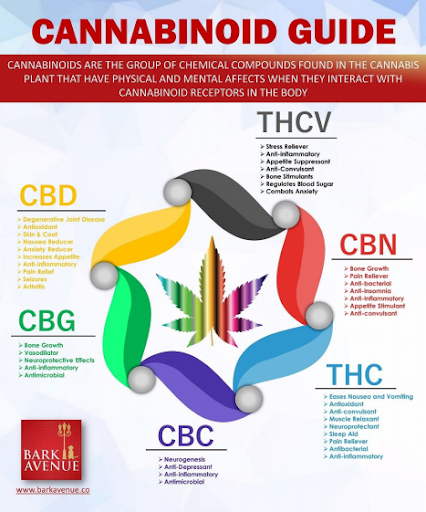CBD gummies, CBD drinks, CBD supplements, CBD balms, CBD bath bombs, CBD vape juice, the list goes on. CBD seems to be popping up in some of the most interesting products sold, at some of the least expected places. CBD is seeming to be, in the holistic health community, the latest and most versatile addition to everything from ingestible to topical products. The list of delivery methods for CBD to enter the body is seemingly endless, which is what makes it so popular and versatile. You may have noticed a rise in the popularity of CBD-infused products in your local stores. Now, not everyone knows exactly what CBD is.

What Is CBD?
CBD is an abbreviation for the organic chemical compound Cannabidiol, a naturally occurring chemical produced by the cannabis plant. Although Cannabidiol (CBD) is a product of the Marijuana plant, it is not to be mistaken for THC (Tetrahydrocannabinol: the psychoactive compound of the Cannabis plant), this is a common misconception. CBD is just one of the many cannabinoids present in the marijuana plant, only one of which (THC) is psychoactive. THC is what is responsible for giving the user that notorious “high” feeling we’ve all heard about. What many people don’t know is that Humans, as well as many other animals, do indeed have a neurological cannabinoid
receptor system, similar to the opiate receptor system. The body actually naturally produces Endocannabinoids, or cannabinoids inside the body; as far as we can tell in neuroscience, CBD interacts with the endocannabinoid receptor system inside the brain which subsequently influences the activity of other neurotransmitters. The relevance of mention to the animal kingdom comes from the recent developing popularity of products like “pet tinctures”, which pet owners have started introducing into their favourite creatures’ diets for a variety of reasons. These products are specially made with pet-friendly ingredients and are usually produced for and marketed toward a particular species, since not all animals have the same dietary restrictions.

Tinctures are a concentration of CBD extract that is usually suspended in an ethanol or alcohol-based solution. There are also oil-based tinctures, but these are usually considered to be labeled or packaged as “CBD Oil”. The usefulness of these tinctures and concentrates is usually defined by the extent of its application; with these products, now along with the wide spectrum of CBD-infused products, these solutions can be added into your favorite cooking recipe or many other things for “dosing” your nutritional portions.
Why Should I Try CBD?
CBD is thought and believed, but not scientifically or medically proven to assist in alleviating certain symptoms of conditions and ailments; although it is not, and should not, be used to prevent, treat or cure any disease or ailment in and of itself. There has not been an adequate amount of research to make such conclusions. Although, these correlations seem to be the entire basis of the marijuana debate and in determining the merit of CBD efficacy. CBD seems to be the most integral component of the medicinal application of the marijuana plant, only we have yet to determine what that specifically means, or what conditions or symptoms CBD would be best used for; not to diminish the medicinal value of the compound. As with any natural or synthetic supplements, consulting a medical professional should be on your list of to-do’s if you plan to join this craze, to see if it is, in fact, a good fit for you. All of this is only applicable to the readers who reside in such CBD legal states (see image).
In CBD We Trust
As individual states have been doing their own research on the substance, there have been found to be great results in the effectiveness of introducing CBD into the body. Some have seen a similar benefit of what most states have already seen in their own medical marijuana programs. Considering these states reserve that certification for patients with a certain severity of ailments, CBD seems to be a good, non-psychoactive alternative useful and safe enough for the population over 21 to handle. Not to mention, the obvious economic benefits, so it is a mutually beneficial exchange.
What Does The Future Hold?
With the rise of the opioid crisis, medical science has developed a sense of urgency in the necessity of non-opioid pain management. Now, there has not been enough definitive research in the infancy of the CBD industry to clearly say whether or not CBD is the answer. Just as is the case with any SSRI’s, as well as pretty much any drug, the effectiveness of its use is heavily defined by the biochemistry of the user; so this may need to be something to find out individually. CBD works in different ways unique to the individual, which makes it an elusively utilized substance as far as any pinpoint use, which is why it’s so difficult to categorize in the medical field as far as its merit and benefit. In the grand scheme of things, is CBD the end all be all solution to the opioid crisis? Unfortunately, not quite so; but in the neurochemistry field, one thing is sure: it’s definitely a step in the right direction.
Written by: Tyler Laske

